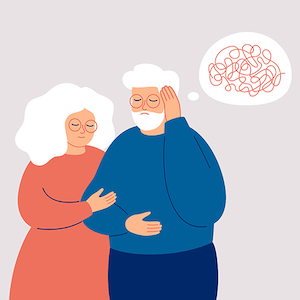Negative and positive ageism in an Italian sample: how ageist beliefs relate to epistemic trust, psychological distress, and well-being

Submitted: December 15, 2022
Accepted: May 4, 2023
Published: July 27, 2023
Accepted: May 4, 2023
Abstract Views: 2153
PDF: 554
HTML: 88
HTML: 88
Publisher's note
All claims expressed in this article are solely those of the authors and do not necessarily represent those of their affiliated organizations, or those of the publisher, the editors and the reviewers. Any product that may be evaluated in this article or claim that may be made by its manufacturer is not guaranteed or endorsed by the publisher.
All claims expressed in this article are solely those of the authors and do not necessarily represent those of their affiliated organizations, or those of the publisher, the editors and the reviewers. Any product that may be evaluated in this article or claim that may be made by its manufacturer is not guaranteed or endorsed by the publisher.
Similar Articles
- Cristina Marogna, Chiara Masaro, Vincenzo Calvo, Simona Ghedin, Floriana Caccamo, The extended unconscious group field and metabolization of pandemic experience: dreaming together to keep cohesion alive , Research in Psychotherapy: Psychopathology, Process and Outcome: Vol. 25 No. 3 (2022): SPECIAL ISSUE: "Group psychotherapy: between settled benchmarks and new horizons"
- Bruno Faustino, António Branco Vasco, Giancarlo Dimaggio, Ana Nunes da Silva, Sophie Seromenho, Self-assessment of patterns of subjective experience: development and psychometric study of the States of Mind Questionnaire , Research in Psychotherapy: Psychopathology, Process and Outcome: Vol. 23 No. 3 (2020)
- Elena Faccio, Ludovica Aquili, Michele Rocelli, What is therapeutic? Analysis of the narratives available on the websites of Italian addiction rehab centres to present the therapeutic programme , Research in Psychotherapy: Psychopathology, Process and Outcome: Vol. 26 No. 1 (2023)
- Pim Cuijpers, Claudio Gentili, Psychological treatments are as effective as pharmacotherapies in the treatment of adult depression: a summary from Randomized Clinical Trials and neuroscience evidence , Research in Psychotherapy: Psychopathology, Process and Outcome: Vol. 20 No. 2 (2017)
- Alexandro Fortunato, Annalisa Tanzilli, Vittorio Lingiardi, Anna Maria Speranza, Psychodiagnostic Chart-Child (PDC-C): a valid and clinically sensitive diagnostic tool for patient-tailored intervention planning , Research in Psychotherapy: Psychopathology, Process and Outcome: Vol. 25 No. 1 (2022)
- Helena Carvalho, Gil Nata, Paula Mena Matos, How secure is the secure base? Romantic attachment, emotion regulation, and psychotherapists’ role as secure base figures , Research in Psychotherapy: Psychopathology, Process and Outcome: Vol. 27 No. 1 (2024)
- John S. Auerbach, The contributions of Sidney J. Blatt: a personal and intellectual biography , Research in Psychotherapy: Psychopathology, Process and Outcome: Vol. 20 No. 1 (2017)
- Rosalba Di Biase, Chris Evans, Daniela Rebecchi, Flavia Baccari, Anna Saltini, Elena Bravi, Gaspare Palmieri, Fabrizio Starace, Exploration of psychometric properties of the Italian version of the Core Young Person’s Clinical Outcomes in Routine Evaluation (YP-CORE) , Research in Psychotherapy: Psychopathology, Process and Outcome: Vol. 24 No. 2 (2021): SPECIAL ISSUE "Working on dreams, from psychotherapy to neuroscience"
- Lidia Borghi, Federica Bonazza, Giulia Lamiani, Alessandro Musetti, Tommaso Manari, Maria Filosa, Maria C. Quattropani, Vittorio Lenzo, Maria Francesca Freda, Daniela Lemmo, Emanuela Saita, Roberto Cattivelli, Gianluca Castelnuovo, Elena Vegni, Christian Franceschini, Dreaming during lockdown: a quali-quantitative analysis of the Italian population dreams during the first COVID-19 pandemic wave , Research in Psychotherapy: Psychopathology, Process and Outcome: Vol. 24 No. 2 (2021): SPECIAL ISSUE "Working on dreams, from psychotherapy to neuroscience"
- Vera Békés, Claire J. Starrs, J. Christopher Perry, Tracy A. Prout, Ciro Conversano, Mariagrazia Di Giuseppe, Defense mechanisms are associated with mental health symptoms across six countries , Research in Psychotherapy: Psychopathology, Process and Outcome: Vol. 26 No. 3 (2023)
<< < 1 2 3 4 5 6 7 8 9 10 > >>
You may also start an advanced similarity search for this article.

 https://doi.org/10.4081/ripppo.2023.676
https://doi.org/10.4081/ripppo.2023.676





